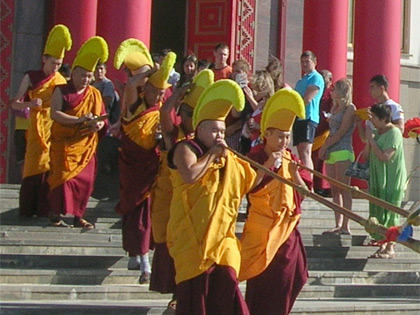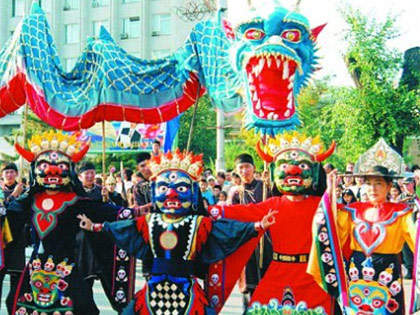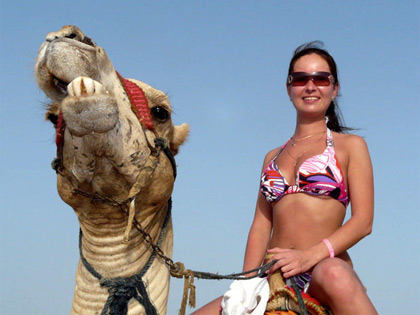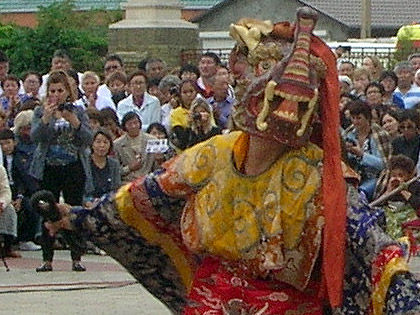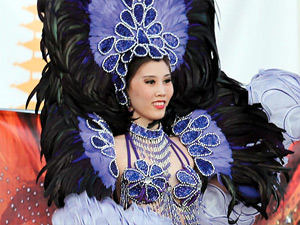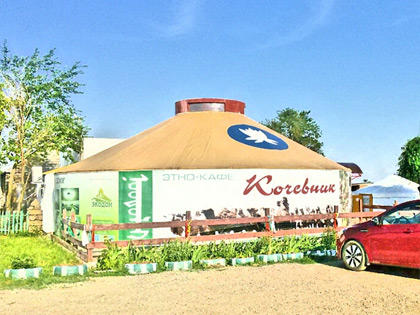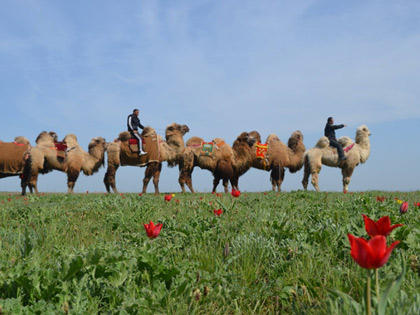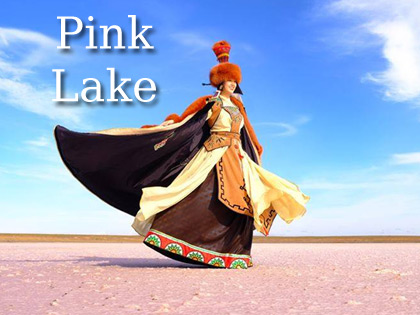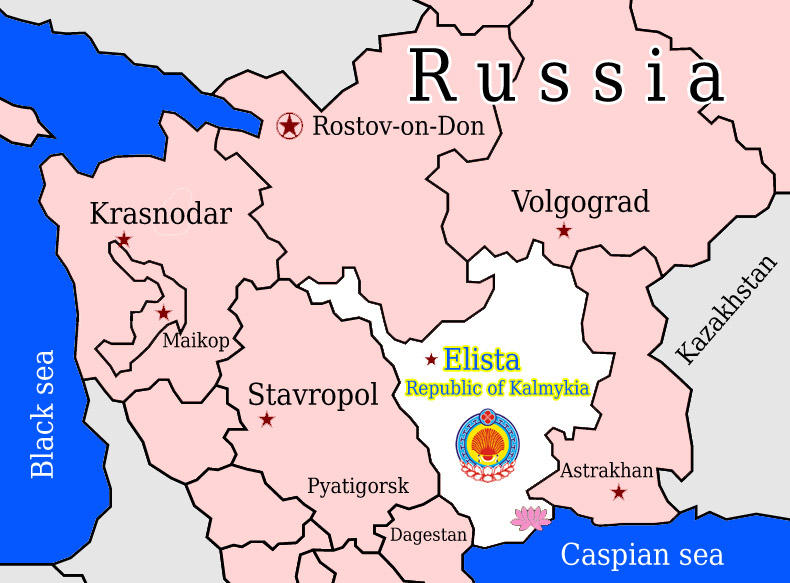The Chessman Cometh
The Chessman Cometh [ En | Ru ]
An interview with globe-trotting chess promoter, former president, and freelance diplomat Kirsan Ilyumzhinov.
INTERVIEW BY JOSHUA E. KEATING. MAY 9, 2012
Kirsan Ilyumzhinov garners an awful lot of press for the president of the World Chess Federation. But he’s not exactly your average chess buff. From 1993 to 2010, he was president of the Russian republic of Kalmykia and became known for his efforts to transform the remote Buddhist region into an international chess mecca as well as for his frank comments about an encounter with aliens he claims to have had in 1997. (He was also widely criticized for his autocratic rule over the impoverished republic.)
Since stepping down as president of Kalmykia to focus full time on chess, he has kept busy. In 2011, he met and played a game with Muammar al-Qaddafi, shortly before the Libyan leader’s downfall. In late April, he had an audience with embattled Syrian President Bashar al-Assad. He also hobnobbed with Bill Clinton, Mikhail Gorbachev, Jimmy Carter, and more at a meeting of Nobel Peace Prize laureates in Chicago last month.
Ilyumzhinov spoke with Foreign Policy by phone on May 7 from Dharamsala, India, where he had just paid a visit to the Dalai Lama. He discussed his meeting with Assad, his thoughts on Russian President Vladimir Putin, his alien encounter, and his vision for a world ruled by chess geniuses.
Foreign Policy: What did you speak about with the Dalai Lama?
Kirsan Ilyumzhinov: I met with his holiness the Dalai Lama in his residence, and we discussed Buddhism, how Buddhism developed in Russia. In 2004, the Dalai Lama visited Kalmykia. At that time, I was the president of the Kalmyk Republic, and I invited him to make some prayers when we started building a new Buddhist temple in Elista, the capital.
He prayed, and after 11 months I helped build it. It is now the biggest Buddhist temple in Europe. The Dalai Lama said he wants to visit Kalmykia because it is the biggest Buddhist republic in Europe. We talked about when it would be possible for him to visit.
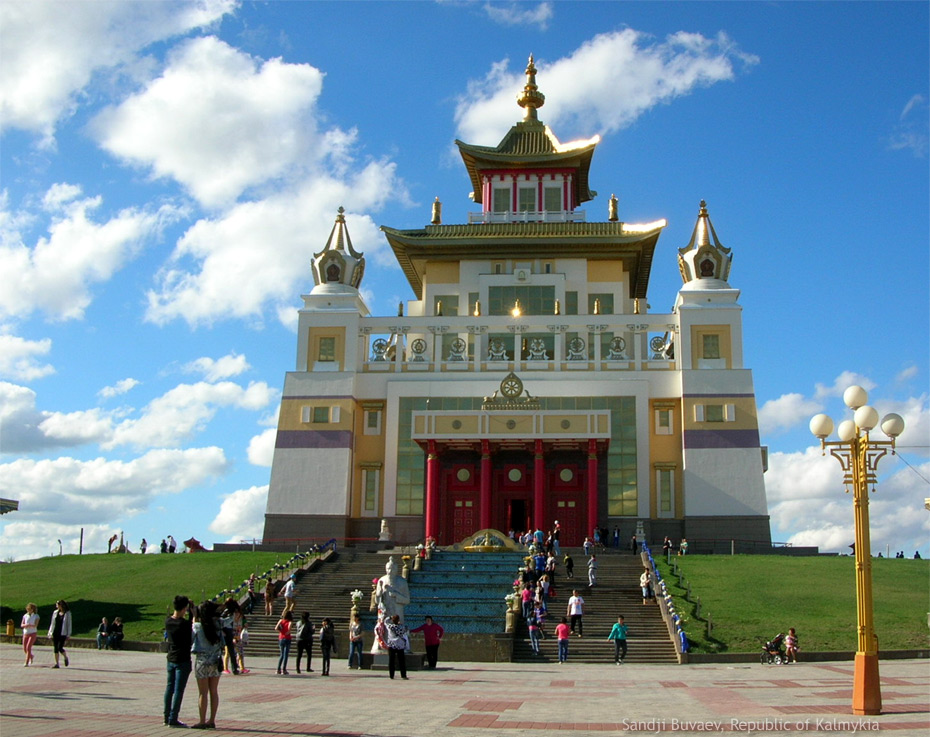

Also, we discussed chess. Tomorrow [May 8], I will meet with the head of the Tibetan schools here in Dharamsala, and I will sign an agreement under which they will introduce chess in Tibetan schools. I will help send chessboards and computer programs and organize some seminars for training.
FP: I heard that during your meeting with Syrian President Bashar al-Assad, you had mentioned the possibility of the Dalai Lama and other Nobel Peace Prize laureates visiting Syria for a peace conference. Did you talk about this with his holiness today?
KI: No. We did not discuss this.
FP: But are you still trying to bring Nobel Peace Prize laureates to Syria?
Kirsan Ilyumzhinov: Yes, when I meet with President Assad in Damascus, we discussed the situation inside Syria. He said to me that he strongly follows the peace plan of former United Nations General Secretary Kofi Annan and he doesn’t want a war and he wants only peace — and he said to me that if both sides follow the plan there will be peace. He said to me that it would be a good idea to organize a summit of Nobel Peace Prize laureates and some famous people who fight for peace around the world. He said to me that he was very worried that some newspapers and TV channels in Western countries only show members of the opposition. He wants to show the situation from both sides. He said to me that he’s going to invite not only journalists but fighters for peace.
He also said to me that chess is a good weapon for diplomacy and could be a weapon for peace.
FP: Did you play chess with him?
KI: No, because there was only a very small chessboard in the palace. But he told me he loves chess and he has played chess since he studied in Britain. Now he plays with the computer. He said to me that he supports a program for chess in schools.
FP: Because of your meeting with President Assad and last year with Muammar al-Qaddafi in Libya, there has been some speculation about whether you are in fact working on behalf of the Russian government. Did you communicate with Moscow about either of these trips?
KI: No. I am independent. I came to Syria from Chicago where I took part in a conference of Nobel Peace Prize laureates. From Chicago, I went to Damascus. The first point was to meet with the [Syrian] National Chess Federation. Two years ago, I visited and we created a program for chess in schools and to create chess clubs. The second point was to meet the president of Syria. I didn’t receive any letters or signs from Russian leaders. I visited Syria as president of the [World] Chess Federation. I did not discuss my visit with Russian leaders. After my visit, I did not discuss it with Russian leaders because I went straight to India to meet with chess players and his holiness the Dalai Lama.
FP: So what was your assessment of what’s going on in Syria right now? Is the media accurately portraying what’s happening?
KI: I learned about the situation in Syria from CNN, the BBC, and newspapers when I was in Chicago. In Russia, journalists describe the situation from another side. When I came to the airport in Damascus, I thought that I would see very nervous people because of the fighting. But when I met with members of the National Chess Federation, on our way to the hotel we stopped at a restaurant and they invited me to have dinner with them. I could see many people on the street, in the market, in the open air, and no bombs. The next day, though, there was a bomb near our hotel. I stayed at the Four Seasons. On the way to the chess club there was also one bomb. In the evening, some terrorists sent bombs to the building of [the] Central Bank of Syria. But the chess players said to me that they want peace. They don’t want this civil war.
The next day when I met with Bashar al-Assad, I thought that I would see a man who was very nervous. But he was very calm, polite, intelligent. I saw him also in 2005 when he made an official visit to Moscow. He talked with me about FIDE [the World Chess Federation] and our tournaments. We talked about chess. After that, he described the situation on the Syrian side. He showed me some materials about the conflict and some terrible photos from Homs. He said that he strongly follows the peace plan of Kofi Annan, and he said to me that he wants only peace in his country, and he said that on the 7th of May there will be elections and he will change the constitution. [Syria held parliamentary elections on May 7 which were boycotted by the country’s opposition.] These are real political reforms.
I didn’t feel that see big fights on the streets. I felt safe.
FP: What’s your take on the current political situation in Russia, with Vladimir Putin returning to the presidency and the growing protests against his government?
KI: When I came to India, I saw on the BBC that there were some clashes [in Moscow]. I called some of my friends, and they said there were demonstrations near Red Square. But Vladimir Putin, he is a strong politician and a strong president. I’ve known him since 1993. At that time, he was deputy mayor of St. Petersburg. He was head of the department of economic relations for Mayor Anatoly Sobchak.
I think maybe Russia needs such a strong president because he knows what he wants to do. When I was president of the Kalmyk Republic and he visited, he saw our problems with agriculture and he created a program to produce more meat. He knows the political and economic situation. During my time as president, I was also a member of the State Council, and I could see that he is a real politician and he knows what to do. He knows in his mind how Russia will be, and he tries to make his ideas into real life.
I would like to meet with him to inform him about my visit to Dharamsala and talk about inviting the Dalai Lama to Russia. It’s a problem with China. Every time I invite his holiness to visit Kalmykia, the Chinese Ministry of Foreign Affairs asks the Russian Ministry of Foreign Affairs not to give him a visa. It is a big problem for Buddhists in Russia. I hope that Vladimir Putin, as president, will not be against allowing the Dalai Lama to visit. In 2004, he allowed him to visit.
FP: As president, you were well known for speaking about being visited by extraterrestrials. Did anyone from the Russian government ever try to get you to stop talking about this?
KI: No. In 1997, in September, when I had the experience of seeing aliens, I informed the former president of Russia, Boris Yeltsin, but he was not interested. I gave an interview to the BBC. Since 1997, there was no reaction. Two years ago, I gave an interview on Russian TV where a journalist asked me about this episode in my life, and I confirmed that, yes, it happened to me in 1997.
When I was president of Kalmykia, nobody said to me that I was crazy, that I should go to a hospital. In 1997, when I was president, I understood that if I announced that I had a meeting with aliens, I knew that some people would criticize me and say, “The president of Kalmykia is crazy.” But now, I usually talk about it openly and honestly. Yes, I was criticized by some journalists and so on, but it’s what happened.
I am not crazy. I am a chess player. My brain is normal.
FP: So, if you could play chess with any public figure in the world today, whom would it be?
Kirsan Ilyumzhinov: I have already played with many people. I remember playing with Steven Seagal, the Hollywood actor. I know also that Arnold Schwarzenegger likes to play chess. I played chess with the former pope, John Paul II.
Now, I’m going to play with everybody who supports chess. Last month I played with Gorbachev. Now he is the honorary chairman of our program for chess in schools. Now my idea is to increase the number of chess players to 1 billion — 1 billion clever people.
If 1 billion people could play chess, they could think ahead more than one move. Chess players should think two, three, or four moves forward. If politicians, presidents, members of parliament, ministers would think two or three moves forward after they signed a law, I think there would be less political mistakes, less wars, less ethnic conflicts and political conflicts. If 1 billion clever people are chess players, then more people from that 1 billion would be elected president of countries like France, Syria, Japan, and so on. There would be fewer mistakes in the world. This is my idea.
Source: www.foreignpolicy.com
Kalmyk history
